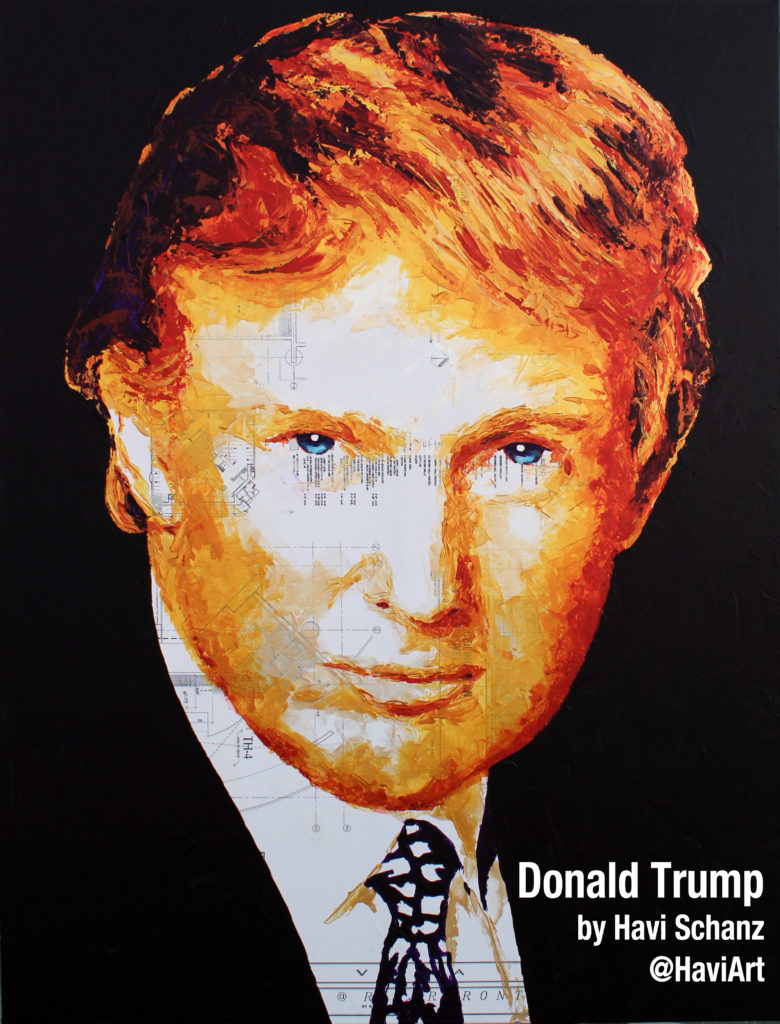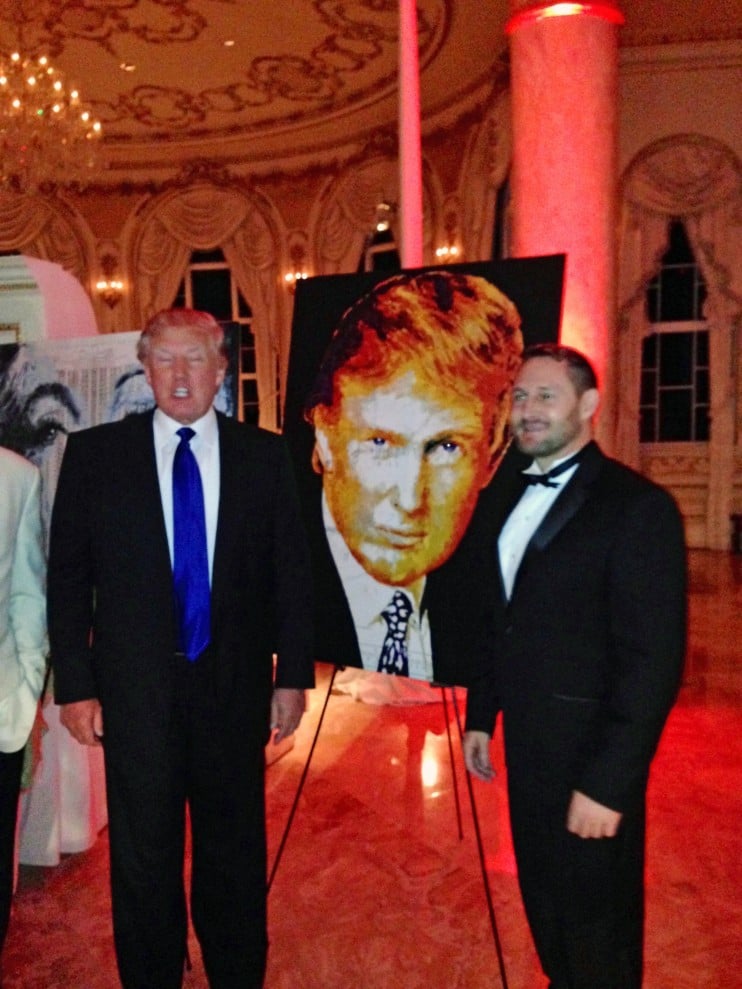Politics
Trump Only Spent $10,000 in Charity Money on a Portrait of Himself Because No One Else Wanted It, His Lawyers Say
The attorney general contends that the painting's purchase was improper self-dealing.

The attorney general contends that the painting's purchase was improper self-dealing.

Sarah Cascone

A portrait of Donald Trump has become a point of contention in the New York Attorney General’s ongoing lawsuit against the Donald J. Trump Foundation.
In court yesterday, the president’s lawyers argued that it was appropriate for the charity to purchase a portrait of Donald Trump for $10,000 at a benefit auction. Why? Because no one else wanted it.
“Trump donate[d] $10,000 to start the bidding,” explained Alan Futerfas, the foundation’s lawyer, to the court, as reported by Bloomberg. “When the bidding goes on and no one else bids, they’re stuck with the painting.”
The four-foot-tall portrait, by Argentinian artist Havi Schanz, depicts a younger Trump, painted in acrylic on top of an architectural drawing. It was purchased at a 2014 auction held at Trump’s Mar-a-Lago country club in Florida to benefit the Unicorn Foundation, which raises money for cancer patients.
The sale has become a point of interest in the case against the Trump Foundation, filed in June by the New York State attorney general’s office, because the president did not pay for the painting personally. Instead, he billed the expense to the Trump Foundation—and later installed the work in one of his hotels in Doral, Florida.

Havi Shanz and Donald Trump with his portrait Donald Trump at a 2014 charity auction. Courtesy of Havi Shanz/@HaviArt.
“This was improper self-dealing, since foundation money was used to buy a painting to decorate a Trump business property,” argued the attorney general’s office in the court filing. (According to the foundation’s lawyer, a hotel employee mistakenly hung the artwork after discovering it in a storage room, and it was returned to the foundation after the election along with a $185.82 rental payment, plus interest.)
The sale of the painting is one of six transactions in which Trump Foundation funds were allegedly used improperly cited in the state’s lawsuit. The state has also accused the foundation of violating campaign finance laws in connection with Trump’s successful 2016 run for president.
The foundation was “used to collect and distribute funds at the direction and for the benefit of the Trump campaign,” assistant attorney general Yael Fuchs told the judge during the hearing, citing a “Trump for Vets” event ahead of the Iowa caucuses that raised $5.6 million in donations. “I think it’s beyond dispute that these were improper self-dealing transactions.”
At yesterday’s hearing, the foundation’s lawyer asked to have the case dismissed, insisting that the attorney general’s office was “making a mountain out of a molehill,” as reported by the New York Post. But the judge declined to consider his argument that the case against the foundation was politically biased.
The judge did not make a ruling, opting to wait for a verdict from a Manhattan appeals court over whether a sitting president can be sued in state civil court.